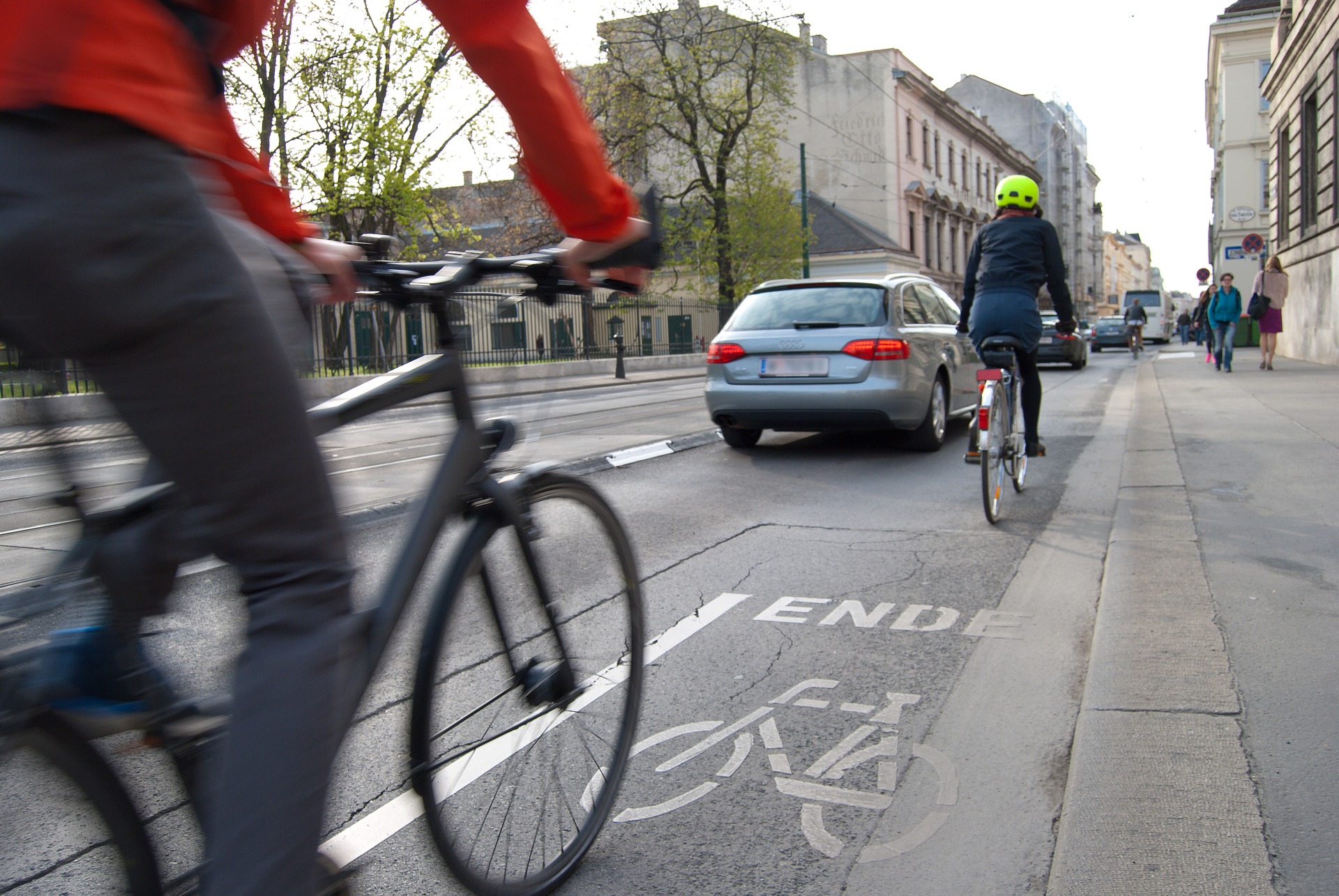If you’ve driven the streets of Toronto in the last few years, you’ve no doubt noticed the ever-increasing proliferation of bike lanes on city streets.
Bicycling to work has many benefits, too many to list… But let’s give it a try:
- Fitness: Cardiovascular exercise, lowers blood pressure, boosts energy
- Savings on fuel, parking and other car-related expenses
- Reduces pollution from fuel emissions
- Reduces traffic congestion from motor vehicles
- Ease of use: Parking is always nearby; no traffic delays
But hang on to your handbrakes — here’s the other side of that equation: An unprotected person on a bicycle and two-ton speeding motor vehicles can be a catastrophic mix. A U.S. study found that you’re more than twice as likely to die, per trip, when riding a bike than in a car. And about 500 times more than riding in a bus. Those are sobering stats for those who strap on their bicycle helmets (or not!) for their daily biking commute.
Closer to home, a Canadian survey found that more than half of cyclists have been in, or know another cyclist who’s been in, an accident of some sort.
Because of the geographic nature of Canada, and the sprawling expanse of cities like Toronto, cycling historically hasn’t been part of the infrastructure, like, for instance, in some European cities where the more compact nature of the road systems allows for it. But that doesn’t mean we aren’t trying.
There is some developing evidence that dedicated bike lanes are reducing injury and death. But the fact is, despite the recent increase in “protected bike lanes” around the city, Toronto is still nowhere near the top when it comes to lists of safest cycling cities around the world, or even in Canada. Montreal and Vancouver are the only Canadian cities to make the respected Copenhagenize Index of Bicycle-Friendly Cities for 2019.
Spoke Too Soon?
Toronto’s “10-Year Cycling Network” Plan that went into effect in 2016 has since been revamped, with its original plans of over 550 km of protected or painted lanes on busy streets proving far too ambitious. As of early 2019, only 6% of the lanes had been opened.
The plan now is to focus on adding a more realistic 120 km of bike lanes over the next three years.
However, with or without dedicated lanes, while drivers and cyclists are always encouraged to share the road, it’s often not the case, with one group sometimes paying no mind to the other. Here are some of the main dangers to cyclists that can lead to serious injury or death:
- Dooring — When a driver opens their car door into the path of an oncoming bicyclist
- Drivers not signalling in advance, giving cyclists no warning that a car is about to turn into their path
- Conversely, cyclists not hand-signalling, leaving drivers with inadequate information about the path of the bike rider, or the more serious form of this:
- Bicyclists weaving in and out of traffic
- Bikes trying to overtake cars from the right, whereby the driver is not anticipating a cyclist whizzing by as they attempt to make a right-turn
- Bicyclists not wearing a helmet, or other protective gear (including reflective clothing to make them more visible, and lights and reflectors on the bike itself)
- Drivers’ distracted driving (texting, etc.)
- Cyclists distracted riding: According to a survey, 36% admit to having texted while biking!
- Not obeying traffic laws — Cyclists need to follow the same rules of the road as motorized vehicles
Any of the above violations can lead to catastrophic injury or even death for cyclists, who aren’t protected by the same encasement of steel and plastic as the vehicle driver.
If you’ve been seriously injured in a bicycle accident with a motor vehicle, you are entitled to claim accident benefits, regardless of who’s at fault. But there are strict limitations: You must notify the no-fault insurer within 7 days of the accident. In addition, you have only a two year period if pursuing a tort claim.
Horowitz Injury Law has nearly 35 years of experience handling these kinds of personal injury cases. Call today, at 416-925-4100, for a free legal consultation.




